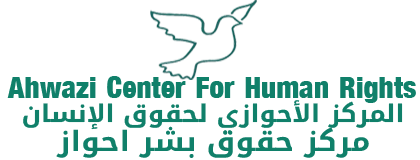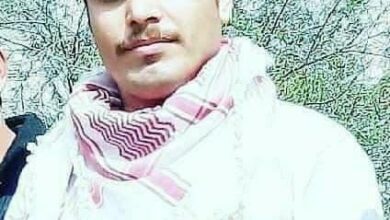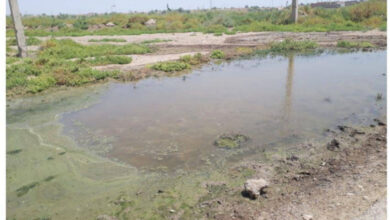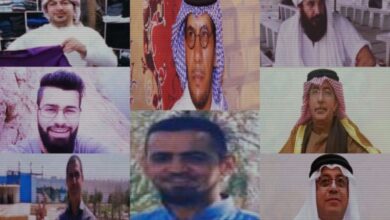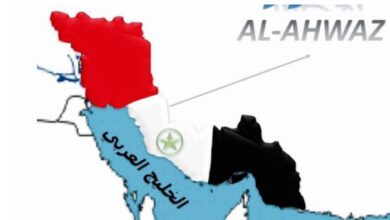The latest situation of Jabir Sakhravi, an Arab Ahwazi prisoner detained in Sheiban Prison:

Jabir Sakhravi, an Arab Ahwazi prisoner, is forced to endure his punitive imprisonment despite his unsuitable physical condition.
Born in 1986, Jabir Sakhravi, a master’s graduate in computer science from the Alavi (Daereh) neighborhood of Ahwaz, is incarcerated in Sheiban (Central) Prison in occupied Ahwaz.
He is currently serving the ninth year of his 12-year punitive sentence, deprived of medical treatment and other civil rights.
According to an informed source, the conditions of Jabir Sakhravi’s detention are very unsuitable, and even his cellmates have expressed dissatisfaction with the state of their room.
Suffering from multiple sclerosis, kidney issues, stomach ailments, urinary tract pain and burning, mental and psychological problems, and having survived a stroke, Jabir Sakhravi has been denied the right to be transferred to a specialized medical center outside the prison. His treatment has been limited to visits to the prison infirmary and the prescription of simple medications, but he has not been sent for specialized examinations by an external specialist for over a year.
The same source added that Jabir Sakhravi has repeatedly clashed with his roommates due to his nerve problems, and according to the prison infirmary doctor, he needs to be referred to a counseling center and undergo psychiatric examinations.
It is worth mentioning that Jabir Sakhravi was arrested on March 24, 2015, while traveling on the streets of occupied Ahwaz by the mercenary agents of the Intelligence Department. After being transferred to his home for a search and confiscation of personal items such as several books and a mobile phone, he was taken to the General Intelligence Detention Center. There, deprived of access to a lawyer and other civil rights, he was interrogated and subjected to various forms of physical and psychological torture for three months. Due to the deterioration of his physical condition, he was transferred to Karun Prison in Ahwaz on June 17, 2015.
With the commencement of the investigation, Jabir Sakhravi was charged by the prosecutor of the Public and Revolutionary Court and his indictment was referred to the Revolutionary Court of Ahwaz (occupied Ahwaz).
During the trial, presided over by Judge Shabani – head of the Revolutionary Court of Ahwaz (occupied Ahwaz), Jabir Sakhravi was convicted of “waging war through the possession and storage of explosives” and “propaganda activities against the regime.” He was sentenced to 14 years of punitive imprisonment for the first charge and six months for the second.
Following an appeal, Jabir Sakhravi’s case was referred to Branch 16 of the Court of Appeals, where Judge Saeed Kosha – head of Branch 16 – tried him. As a result of the reduced total sentence, he was sentenced to 12 years and five months of punitive imprisonment in late June 2016.
Regarding the charges against Jabir Sakhravi, it should be noted that during the interrogations, he was subjected to various forms of torture to extract forced confessions against himself. The physical and psychological effects of this, despite more than nine years passing, are still evident in him, making such an accusation a violation of human rights and a clear example of torture.
Hossein Bouazar originates from Ahwaz and stands as a fervent champion for human rights. Deeply connected to his Ahwazi Arab heritage, his literary works illuminate the adversities faced by this community. An outspoken critic of the Iranian regime, Hossein bravely highlights the grave human rights violations inflicted upon the Ahwazi Arabs. Through his compelling narratives, he seeks to amplify international consciousness of the challenges the Ahwazi Arabs encounter. His prose resonates as a defiant call for a world that upholds the inherent rights of every individual, irrespective of their ethnic roots or background.
